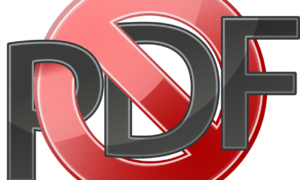Discover the essentials of paycheck stub compliance in this comprehensive guide for employers. With 1,200 words of expert insights, examples, and tips, you’ll learn how to create accurate and compliant paycheck stubs, navigate state and federal requirements, and avoid legal pitfalls. Ensure your employees are paid correctly and protect your business from costly penalties with this indispensable resource
Introduction
Paycheck stub compliance is a critical aspect of running a successful business. Accurate and compliant paycheck stubs not only ensure that your employees are paid correctly but also help you avoid costly legal penalties and disputes. In this comprehensive guide, we will explore the key elements of paycheck stub compliance for employers, providing you with essential examples, tips, and additional information to help you navigate this crucial aspect of payroll management.
Section 1: Understanding Paycheck Stub Basics
Before we dive into the details of compliance, let’s establish a foundational understanding of what a paycheck stub is and what it should include.
A paycheck stub, also known as a paystub or earnings statement, is a document that outlines an employee’s earnings and deductions for a specific pay period. It is typically provided to employees alongside their paychecks. A compliant paycheck stub should contain the following essential elements:
1. Employee Information: Include the employee’s full name, address, and Social Security Number (SSN). Ensure that this information is up-to-date and accurate.
2. Employer Information: Display your company’s legal name, address, and Employer Identification Number (EIN).
3. Pay Period: Clearly state the pay period for which the paycheck is issued. This helps employees track their earnings.
4. Earnings: Break down the employee’s gross wages, which include their regular hourly rate or salary and any overtime pay. Provide separate lines for different types of earnings, such as bonuses or commissions.
5. Deductions: List all deductions made from the employee’s earnings, such as federal and state income tax, Social Security, Medicare, and any voluntary deductions like health insurance premiums or retirement contributions.
6. Net Pay: Calculate and display the net pay, which is the amount the employee receives after all deductions have been subtracted from their gross earnings.
7. Accruals and Balances: If applicable, include information on accrued vacation or sick leave balances.
8. Legal Notices: Some states require specific legal notices to be included on paycheck stubs, such as information about the minimum wage, overtime rates, or wage theft protection. Be aware of your state’s requirements.
Section 2: State-Specific Requirements
Payroll compliance is not one-size-fits-all, as each state may have its own regulations regarding paycheck stubs. Employers must be aware of and adhere to the specific requirements in the states where they operate. Let’s examine a few state-specific examples:
California: California paycheck stub requirements are stringent. Employers in California must include detailed information, such as hours worked, rates of pay, and specific deductions. Failure to comply with these requirements can result in fines.
New York: In New York, employers must provide employees with written wage notices at the time of hiring and, in some cases, on each pay date. The wage notice must include various details about wages, including the basis for payment (hourly, salary, commission, etc.) and the regular payday.
Texas: While Texas does not have as many paycheck stub requirements as California or New York, it still has specific rules. Texas employers must provide employees with written notice of their pay rates and payday schedules.
It’s crucial to consult your state’s labor department or a legal expert to ensure you are in compliance with all relevant state laws.
Section 3: Federal Requirements
In addition to state regulations, federal laws also dictate certain aspects of paycheck stub compliance. Here are some federal requirements to keep in mind:
Fair Labor Standards Act (FLSA): Under the FLSA, employers must maintain accurate records of employees’ hours worked, wages paid, and other employment-related information. This information may be subject to inspection by the Department of Labor.
Family and Medical Leave Act (FMLA): Employers covered by FMLA must provide employees with written notice of their rights and responsibilities under the law, which can include information on paycheck stubs related to FMLA leave.
Tax Reporting: Employers are required to report employee wages and deductions to the Internal Revenue Service (IRS) and Social Security Administration (SSA) using Form W-2. These forms must be provided to employees by January 31st of each year.
Section 4: Best Practices for Paycheck Stub Compliance
Now that we’ve covered the basics and legal requirements, here are some best practices to help you maintain paycheck stub compliance effectively:
1. Stay Informed: Keep abreast of changes in federal and state labor laws. These laws can change, so regularly review and update your paycheck stub templates as needed.
2. Use Payroll Software: Invest in reliable payroll software that can automatically generate compliant paycheck stubs. This reduces the risk of errors and ensures accuracy.
3. Train Your Payroll Team: Provide training to your payroll team on paycheck stub compliance, especially if you have operations in multiple states with varying regulations.
4. Regular Audits: Conduct regular internal audits of your payroll records to identify and rectify any compliance issues promptly.
5. Employee Communication: Clearly communicate paycheck stub details to your employees. Provide explanations for any codes or abbreviations used on the stubs to prevent confusion.
6. Record Keeping: Maintain meticulous records of all paycheck stubs and relevant documentation for at least three years, as required by the FLSA.
Section 5: Consequences of Non-Compliance
Failure to maintain paycheck stub compliance can result in significant consequences for employers, including:
– Fines and Penalties: Violations of paycheck stub regulations can lead to fines and penalties, which vary depending on the severity of the violation and the governing authority.
– Employee Lawsuits: Non-compliance can also result in employee lawsuits for unpaid wages, which can be costly in terms of legal fees and settlements.
– Reputation Damage: Reputation damage can occur if employees perceive that you are not taking their rights seriously or if you repeatedly make paycheck errors.
– Regulatory Scrutiny: Non-compliance may trigger regulatory investigations, which can be time-consuming and detrimental to your business’s reputation.
Conclusion
Ensuring paycheck stub compliance is not just a legal obligation; it’s a fundamental aspect of responsible business management. By understanding the basics, staying informed about state and federal requirements, implementing best practices, and addressing compliance issues promptly, employers can maintain a smooth payroll process while avoiding costly legal repercussions. Remember, a compliant paycheck stub not only benefits your employees but also protects your business from potential liabilities and disputes.
























